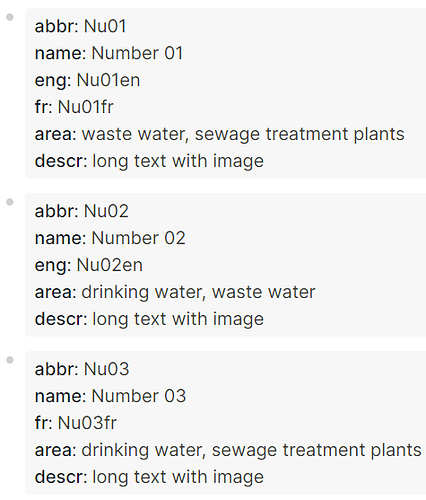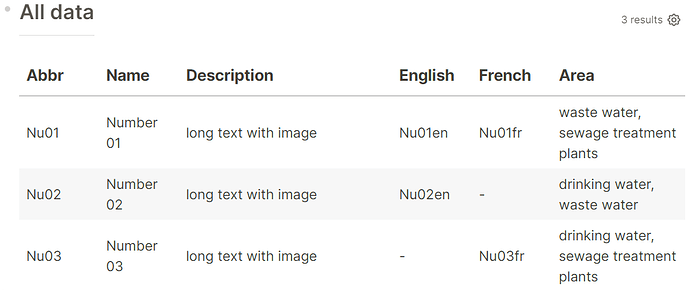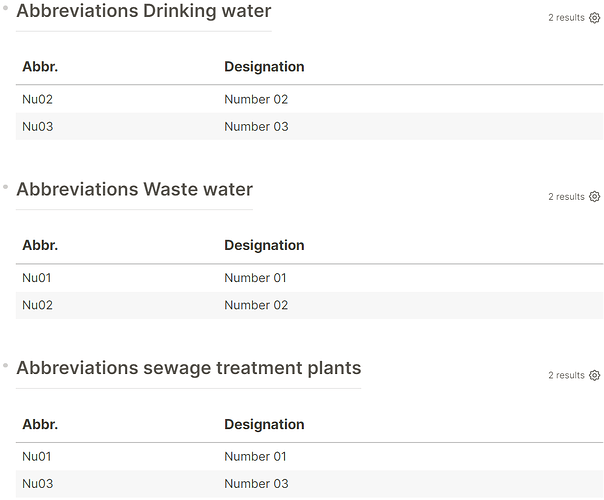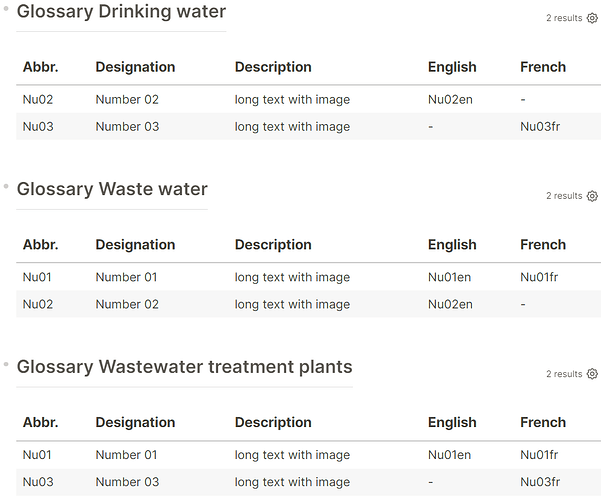Hello
I need to maintain several glossaries (e.g. drinking water, wastewater, sewage treatment plants, …) and abbreviation directories (e.g. wastewater, sewage treatment plants, wastewater treatment, …). For historical reasons, the glossaries and lists of abbreviations are stored in individual Word tables. Due to the similar subject matter, the entries in the various tables overlap considerably. If a change is required, changes have to be made in many/almost all tables. I would like to simplify my work and create a single list/table from the various tables, from which I can create the glossaries and abbreviation directories. I would like to use LogSeq for this, but I don’t know how. Please give me some tips.
I could imagine creating a LogSeq page for each entry. These could look like this, for example:
Example 1: number 1
tags:: waste water, sewage treatment plants
- Abbreviation:** Nu01
- **Name:** Number 01
- Description:**
- here is a long Text
- an there Text
Example 2: number 2
tags:: drinking water, waste water
- Abbreviation:** Nu02
- **Name:** Number 02
- Description:**
- here is a long Text
- an there Text
Example 3: number 3
tags:: drinking water, waste water, sewage treatment plants
- Abbreviation:** Nu03
- **Name:** Number 03
- Description:**
- here is a long Text
- an there Text
List of abbreviations Drinking water:
| abbr. | designation |
|---|---|
| nr2 | number 2 |
| nr3 | number 3 |
List of abbreviations Waste water:
| abbr. | designation |
|---|---|
| nr1 | number 1 |
| nr2 | number 2 |
| nr3 | number 3 |
List of abbreviations for sewage treatment plants:
| abbr. | designation |
|---|---|
| nr1 | number 1 |
| nr3 | number 3 |
Glossaries Drinking water:
| abbr. | designation | description |
|---|---|---|
| nr2 | number 2 | number 2 |
| nr3 | number 3 | number 3 |
Glossary Waste water:
| abbr. | designation | description |
|---|---|---|
| nr1 | number 1 | number 1 |
| nr2 | number 2 | number 2 |
Glossary Wastewater treatment plants:
| abbr. | Name | Description |
|---|---|---|
| nr1 | number 1 | number 1 |
| nr3 | number 3 | number 3 |
Although I am not 100% sure about the detailed representation.




